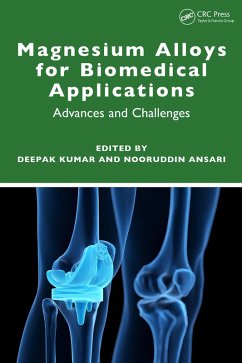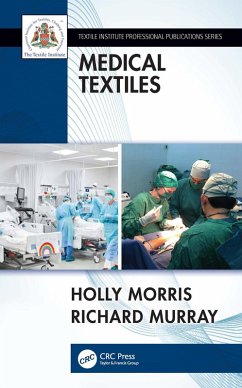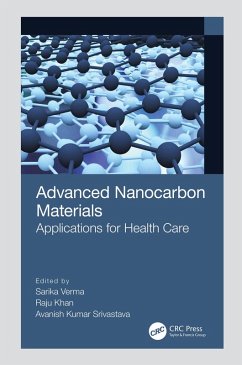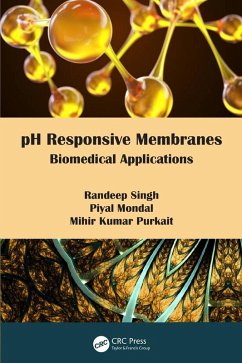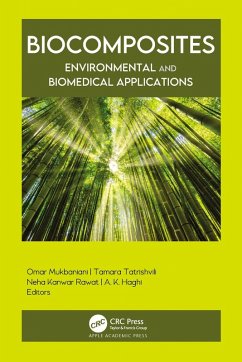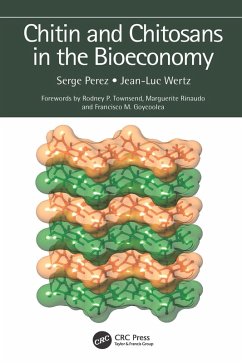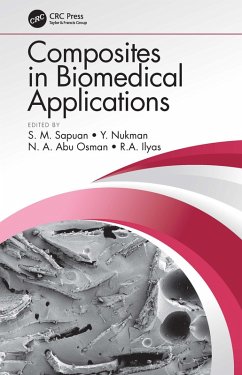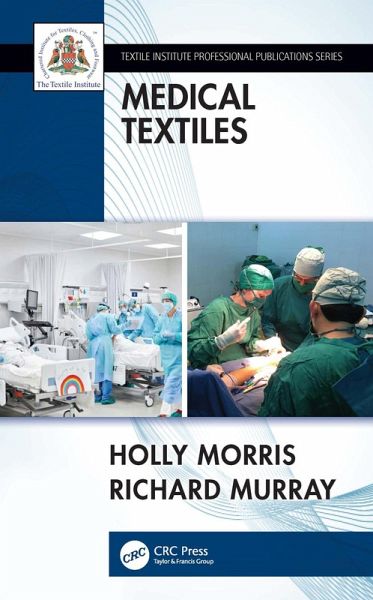
Medical Textiles (eBook, ePUB)
Versandkostenfrei!
Sofort per Download lieferbar
157,95 €
inkl. MwSt.
Weitere Ausgaben:

PAYBACK Punkte
79 °P sammeln!
This textbook aims to ensure that advances in medical textiles are addressed and that recent developments are able to be appreciated and understood not only by medical practitioners and healthcare personnel but also by textile scientists and technologists. The idea is to stimulate collaborative research and development in the field of medical textiles and to equip researchers with an understanding of the steps they need to take to ensure that their efforts, be they to develop new devices for implantation or items for external application, are carried out in such a way as to improve their effec...
This textbook aims to ensure that advances in medical textiles are addressed and that recent developments are able to be appreciated and understood not only by medical practitioners and healthcare personnel but also by textile scientists and technologists. The idea is to stimulate collaborative research and development in the field of medical textiles and to equip researchers with an understanding of the steps they need to take to ensure that their efforts, be they to develop new devices for implantation or items for external application, are carried out in such a way as to improve their effectiveness and enhance the prospects for their implementation. Attention is drawn to the need to improve outcomes in the practical setting and to guidance on the detailed planning required prior to engaging in experimental work. Standard tests can help researchers to monitor performance, but for some important applications such as those required to demonstrate antimicrobial and fluid-repellent performance in most items of protective wear, standard tests consistently fall seriously short in terms of predicting how well they might work in the practical setting. Guidance is therefore given for their further development.
Chapters within the textbook cover:
The book provides essential reading for textile professionals, biomedical engineers, and others involved in the research, design and engineering of medical and healthcare appliances, and for those employed in the medical profession wishing to gain new insights into the wealth of materials at their disposal.
Chapters within the textbook cover:
- The history of innovation within medical textiles with particular attention given to key concepts of the latter part of the 19th Century and subsequent associated developments.
- Textile and polymer science underpinning fibres, fabrics, nano-fibre technology and the functional finishes that can be applied to enhance the performance of medical textile products.
- Woven, knitted, nonwoven and braided fabrics and the key performance characteristics of each fabric type which make them particularly suited to specific medical textile roles such as mesh, grafts, filtration and scaffolds for tissue engineering.
- Implantable medical textiles, non-implantable medical textiles, health and hygiene products and extracorporeal devices that use textile products.
- Legislative requirements for medical devices.
- The design of experiments and suitability for purpose of textile test methods.
- Case studies to illustrate how medical textiles are applied in practice.
The book provides essential reading for textile professionals, biomedical engineers, and others involved in the research, design and engineering of medical and healthcare appliances, and for those employed in the medical profession wishing to gain new insights into the wealth of materials at their disposal.
Dieser Download kann aus rechtlichen Gründen nur mit Rechnungsadresse in A, B, BG, CY, CZ, D, DK, EW, E, FIN, F, GR, HR, H, IRL, I, LT, L, LR, M, NL, PL, P, R, S, SLO, SK ausgeliefert werden.






